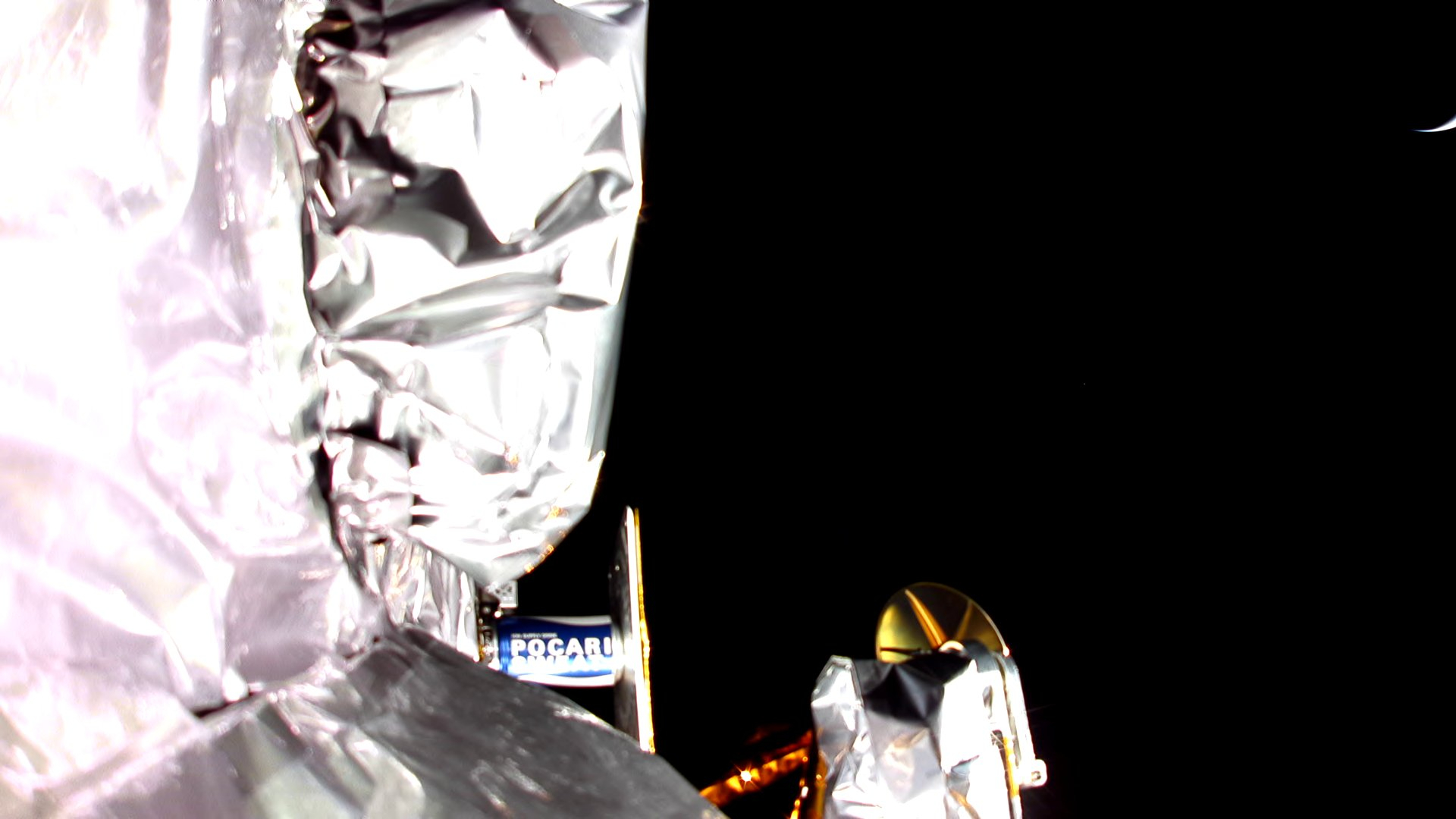
Astrobotic's Peregrine moon lander has beamed home another in-space selfie, a memorable shot that captured a sliver of its home planet.
The photo, which Astrobotic posted on X on Tuesday afternoon (Jan. 9), shows one of the Peregrine moon lander's legs (at bottom center) as well as the Pocari Sweet Lunar Dream Time Capsule, which was put on board by the Japanese company Astroscale.
Pocari "was the first payload under contract with Astrobotic and contains messages from children around the world," Astrobotic representatives wrote in the X post (formerly Twitter).
But there's something else in the shot as well, as the post notes: "Is that sliver in the upper right corner Earth, or a lens flare?" In an X post on Wednesday evening (Jan. 10), the Pittsburgh-based company confirmed that the sliver is, in fact, Earth.
Related: 1st photo from crippled private Peregrine moon lander holds clue about anomaly
Peregrine launched early Monday morning (Jan. 8), on the debut flight of United Launch Alliance's Vulcan Centaur rocket.
The liftoff went well, but the lander began leaking propellant shortly after deploying from the rocket's upper stage. Astrobotic thinks the leak may have been caused by a stuck valve, which led to a ruptured oxidizer tank. (The first selfie that Peregrine sent home helped the mission team trace the craft's problems to its propulsion system.)
The leak will prevent Peregrine from attempting a moon landing as planned. Success on that effort, which was scheduled for Feb. 23, would have been historic: No private spacecraft has ever touched down softly on Earth's nearest neighbor.
Update #10 for Peregrine Mission One: pic.twitter.com/lpLd6KF24YJanuary 10, 2024
The lander is still heading toward the moon's neighborhood, sent that way by the Vulcan Centaur during Monday's launch.
In a mission update posted on X on Wednesday morning, Astrobotic said that Peregrine is currently about 192,000 miles (310,000 kilometers) from Earth, or about 80% of the way to the moon.
The lander's trajectory includes a "phasing loop" around Earth, which "goes out to lunar distance, swings back around the Earth and then cruises out to meet the moon," Astrobotic wrote in the update. "This trajectory reaches the moon in about 15 days post-launch."
Peregrine has about 35 hours' worth of fuel left, the company added.
The lander is carrying 20 payloads for a variety of customers, including NASA, which put five science instruments onboard via its Commercial Lunar Payload Services (CLPS) program.
Peregine's mission was the first CLPS effort to get off the ground. The second will come next month, if all goes according to plan, when a SpaceX Falcon 9 rocket launches Houston company Intuitive Machines' Nova-C lander toward the moon.







